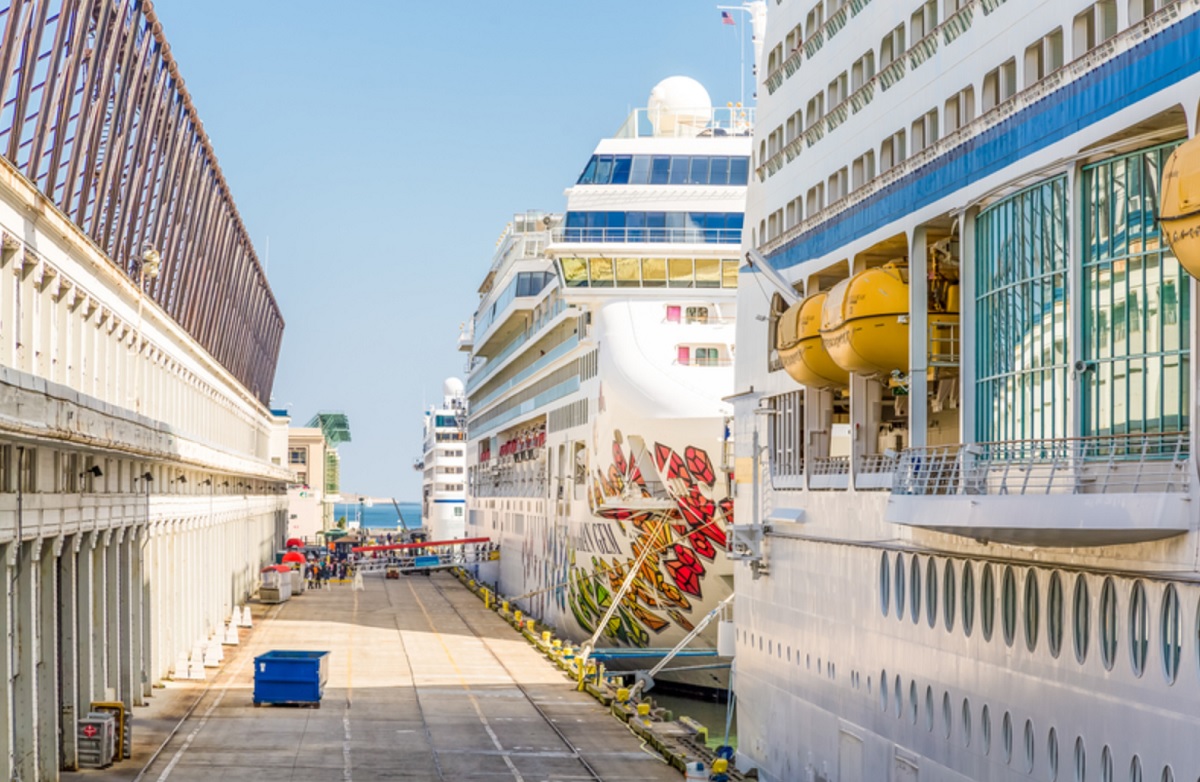Port charges are part of cruising. The charges assist pay for issues like docking tolls, inspection prices, native taxes, pier facility utilization, and line dealing with. And within the final a number of months, just a few cruise ports have introduced a rise of their charge construction.
The demand for cruising continues to rise, and together with it just a few charges that vacationers must find out about. Whereas nobody loves paying extra for port charges, these adjustments generally result in higher docking services and companies to assist native communities.
Let’s check out just a few ports the place charges are altering and why these changes are being made.
Boston

For cruise vacationers setting sail from Boston, there’s a brand new charge of $3 per particular person coming in 2026.
Final yr, Boston’s cruise port (Flynn Cruiseport Boston) welcomed almost half 1,000,000 passengers. And MassPort.com studies that they’re anticipating over 140 cruise ships from 22 completely different traces between March and November alone this yr.
With the rising variety of passengers, the port wants extra funding to handle the visitors. The Massachusetts Port Authority is planning a $105 million venture that features a new boarding bridge, a shore energy electrical grid, and different renovations.
This $3 charge, not too long ago authorized by MassPort, will assist fund these enhancements. Nonetheless, don’t get used to this charge staying at $3. The charge is about to extend by $3 a yr till 2030, when it reaches $15 per particular person.
On the constructive aspect, the funds will assist make the port the primary in New England to supply shore-to-ship electrical energy. So, ships will be capable of flip off their engines in port.
St. Thomas

St. Thomas is preparing for bigger ships, and so the port charges are getting bigger as effectively. Making the announcement on the finish of final yr, St. Thomas is elevating the port charge from $6.84 per passenger to $9.84.
The rise in funding shall be used to dredge Charlotte Amalie Harbor to depths of 40 ft so among the mega ships of immediately will be capable of use the port.
The charge would have been even greater however the U.S. Virgin Islands authorities chipped in $17 million to assist with the venture, as tourism is a crucial a part of the native economic system.
Wharfage charges are additionally rising: by $0.44 per particular person on the WICO dock beginning January 1, 2025 (from $7.80 to $8.24), and at Crown Bay in St. John beginning April 1, 2025. The wharfage charge will increase will fund marine operations and dock upkeep.
Orkney Islands

After having over 210,00 cruise guests in Orkney Islands final yr, the Scottish cruise port is gearing up for an additional busy yr in 2025.
To assist offset the impression of all the further cruise visitors, the Orkney Islands Council is backing a proposal that may cross on a £5 levy onto cruise passengers. So, this improve in value to passengers isn’t fairly official simply but.
Native leaders in Orkney are saying that native ferry customers received’t be affected and that the levy goals to boost each the customer expertise and the well-being of the island communities.
The proposal has been endorsed by the council and is ready on additional motion from the Scottish authorities.
What About Cozumel?
In December of las yr Cozumel, Mexico introduced {that a} $42 cruise passenger tax was coming. It was supposed to enter impact in January 2025.
However that plan is now delayed till July 2025 in what’s being known as to be a short-term delay. Critics of the plan spotlight that the funds wouldn’t even go towards port services however as an alternative would go towards the Mexican Military and different tasks.
There haven’t been any latest official statements from the Mexican authorities clarifying whether or not the tax will certainly be applied in July, if it is likely to be modified, or if it may very well be scrapped altogether.
The Florida-Caribbean Cruise Affiliation (FCCA) warned concerning the plan saying, “Whereas the proposed postponement gives a brief reprieve, FCCA stresses that extra complete measures are required to handle broader considerations concerning the tax’s devastating impression on cruise tourism, Mexico’s economic system, and the livelihoods of its coastal communities.”
We’ll hold our ears to the bottom on this one and let readers find out about any updates.
